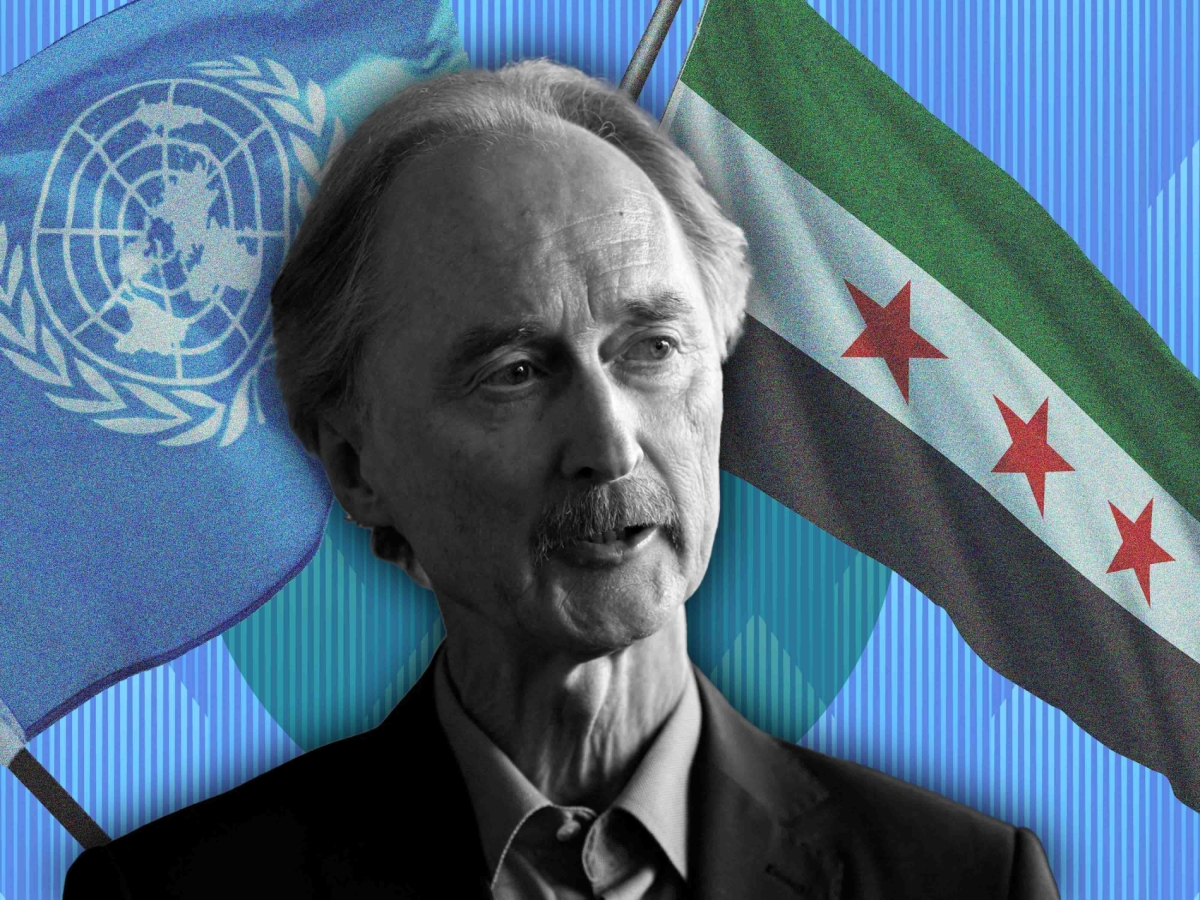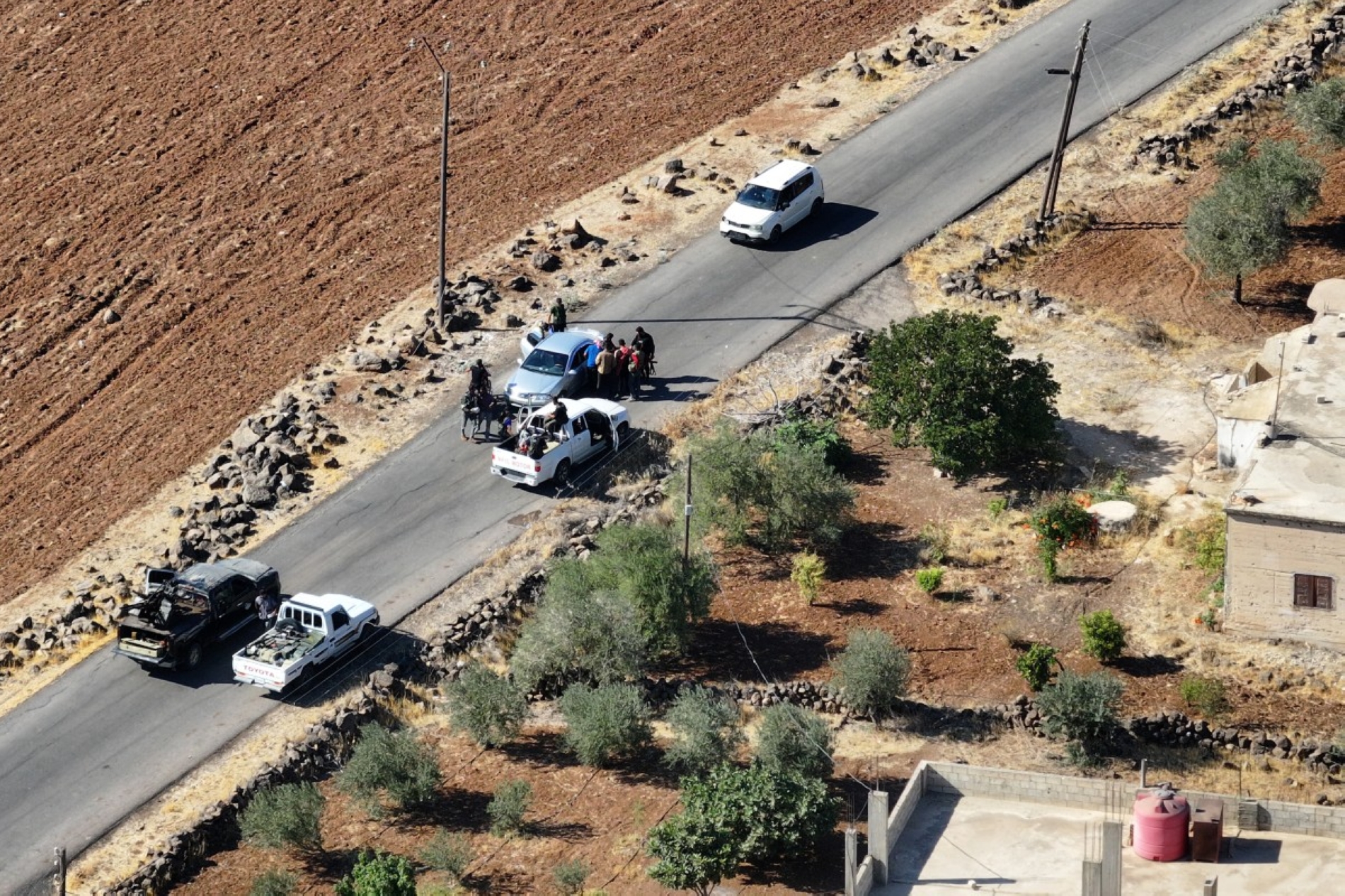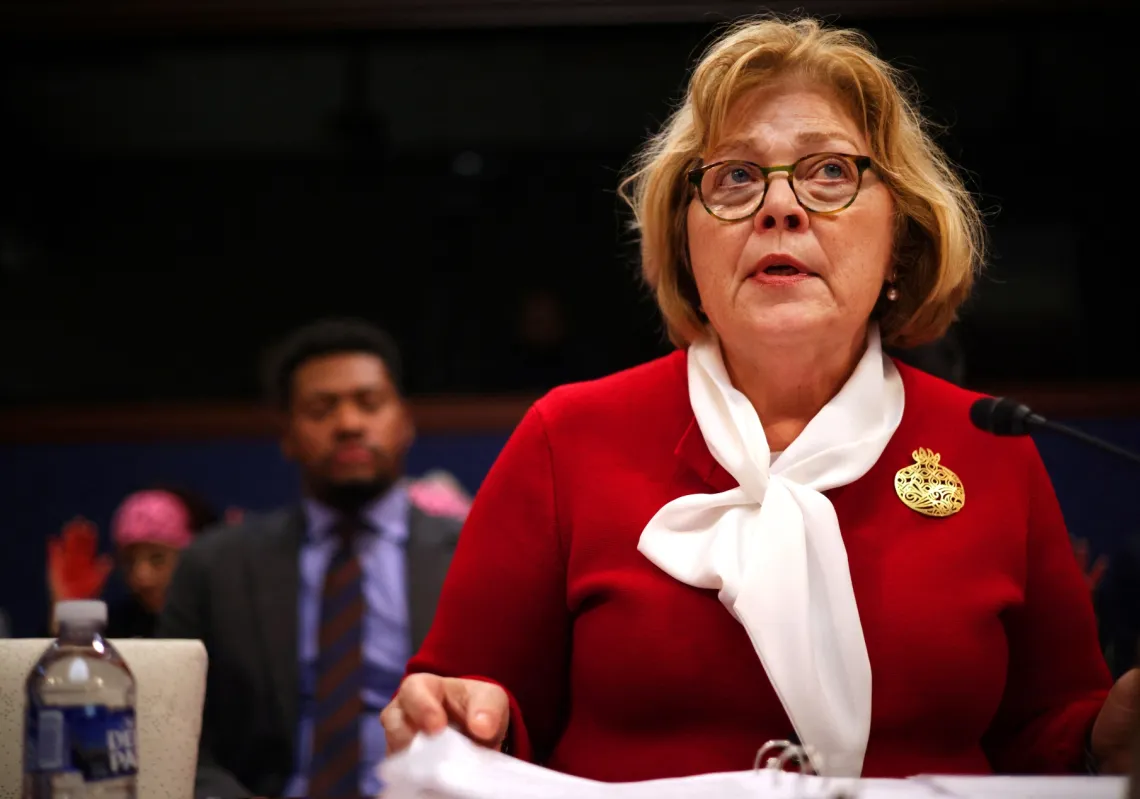The United Nations’ Special Envoy for Syria, Geir Pedersen, has said the country’s central government in Damascus should aim to establish sovereignty and control over its whole territory, but not through force.
Speaking to Al Majalla, the Norwegian diplomat—who helped put together the Oslo Accords in 1993—said he understood the need to apply the principle of sovereignty over all Syrian territory, but added that “rigidly” applying it without recognising Syria’s transitional phase was “misguided”.
His comments come after sectarian violence between Bedouin tribes and the local Druze community in the southern city of Sweida led the Interim Authority (IA) in Damascus to send troops to quell the violence, only for Israel to start bombing soldiers, tanks, and the Defence Ministry in Damascus to “protect” the Druze.
Pedersen, who spoke to Al Majalla at length not long after former dictator Bashar al-Assad was ousted by forces led by interim President Ahmed al-Sharaa, explained that “loyalty to the state cannot be imposed through military force... citizens develop a genuine sense of belonging when they feel that the state represents them, protects them, upholds their rights, and treats all individuals equally”.
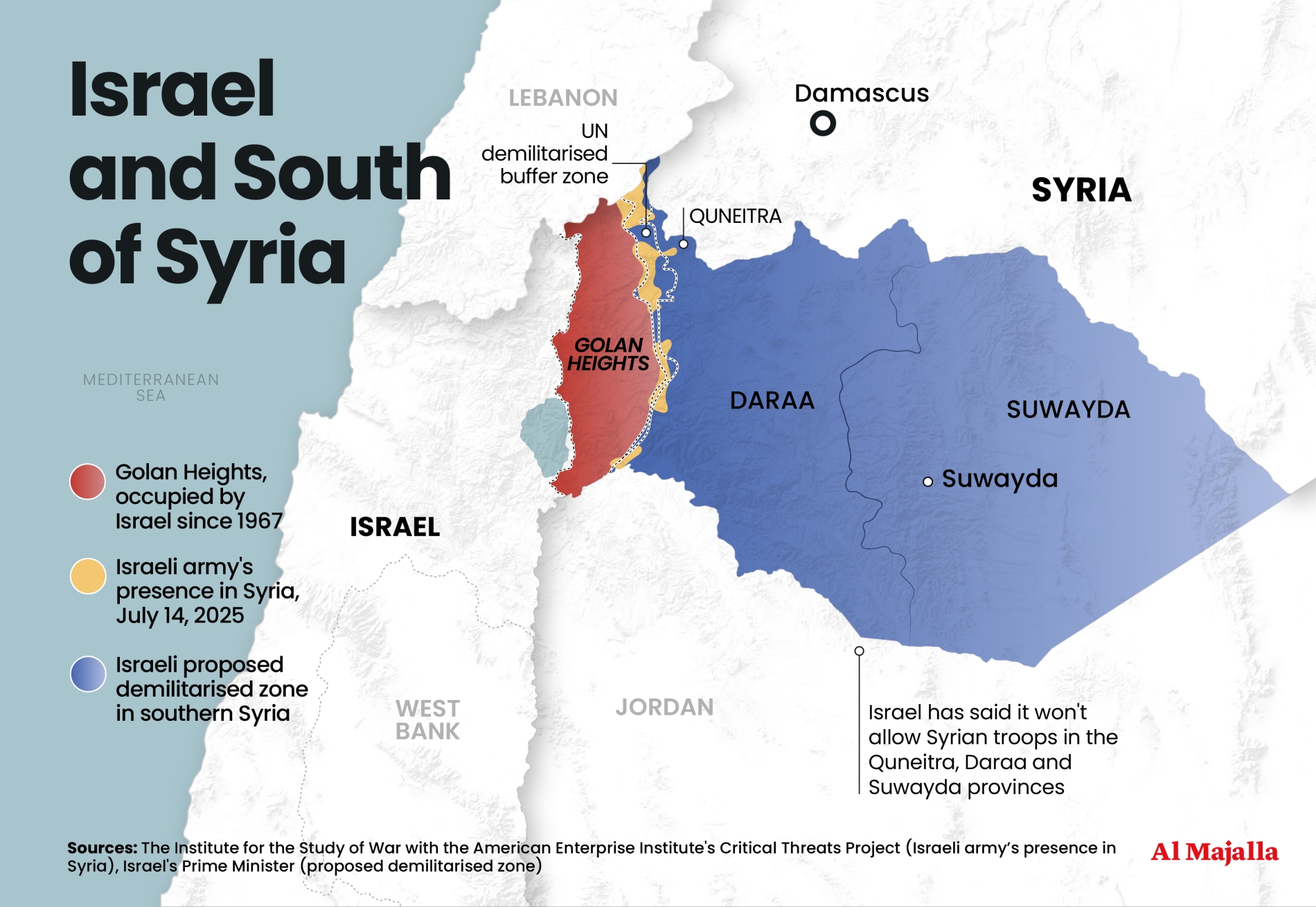
Speaking to Al Majalla just hours after a US-facilitated ceasefire led to IA troops returning to Damascus on Wednesday, he said “international” help was not the answer for Syria, whether from the UN, Israel, or anyone else. Here is the conversion:
How do you view the situation in Sweida?
There are two key issues at play here. The first is sovereignty and the state’s right to assert its authority over its entire territory. The second is how to manage areas that remain outside state control within the current Syrian context.
Syria is undergoing a political transition after decades of oppression and authoritarian rule, so rigidly applying the principle of sovereignty without recognising this transitional phase is misguided. Ultimately, loyalty to the state cannot be imposed through military force. Citizens develop a genuine sense of belonging when they feel that the state represents them, protects them, upholds their rights, and treats all individuals equally.
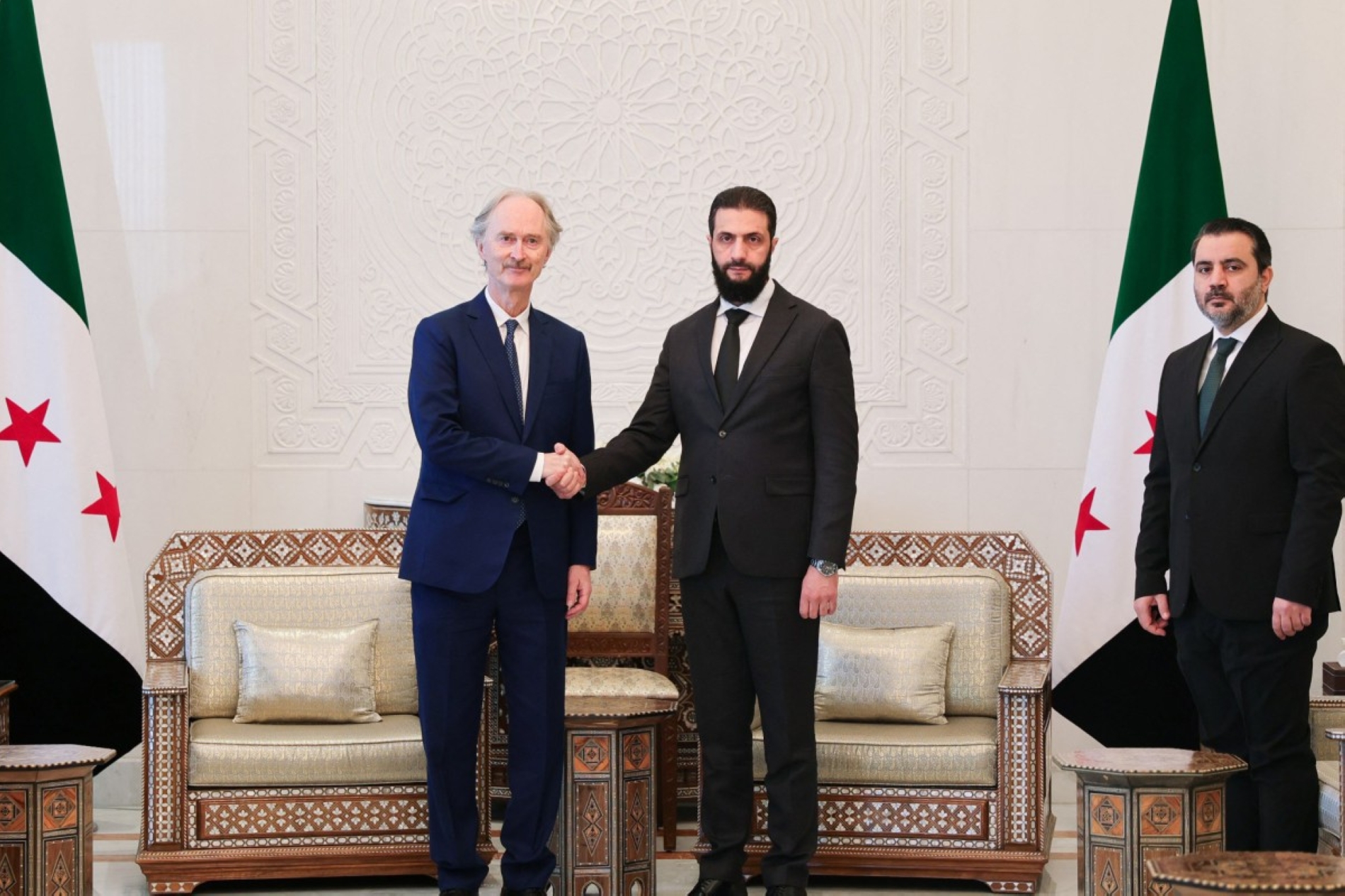
Most parties in Sweida and elsewhere do not oppose the idea of the state reasserting its authority. The question is how it should be carried out? It must be done through dialogue, mutual understanding, and agreed-upon arrangements.
What began in Sweida as clashes between Bedouin and Druze groups initially prompted state intervention to stop the violence and control rogue elements. Unfortunately, it escalated. We have witnessed severe violations. The IA acknowledges the need to halt these abuses and hold those responsible accountable. It now needs to follow through on these commitments.
What role did you and your team play during the fighting?
We monitored the events and maintained constant communication with all parties involved. My deputy is currently in Damascus, actively engaging with both the IA and the parties on the ground in Sweida. Our efforts are focused on calming the situation, de-escalating tensions, and protecting civilians.
Social media has shown several violations. How do you view this, and how should it be addressed?
We have followed the deeply alarming reports of violations, including summary executions, humiliations, and serious abuses against civilians. There have also been casualties among the security forces and other parties.
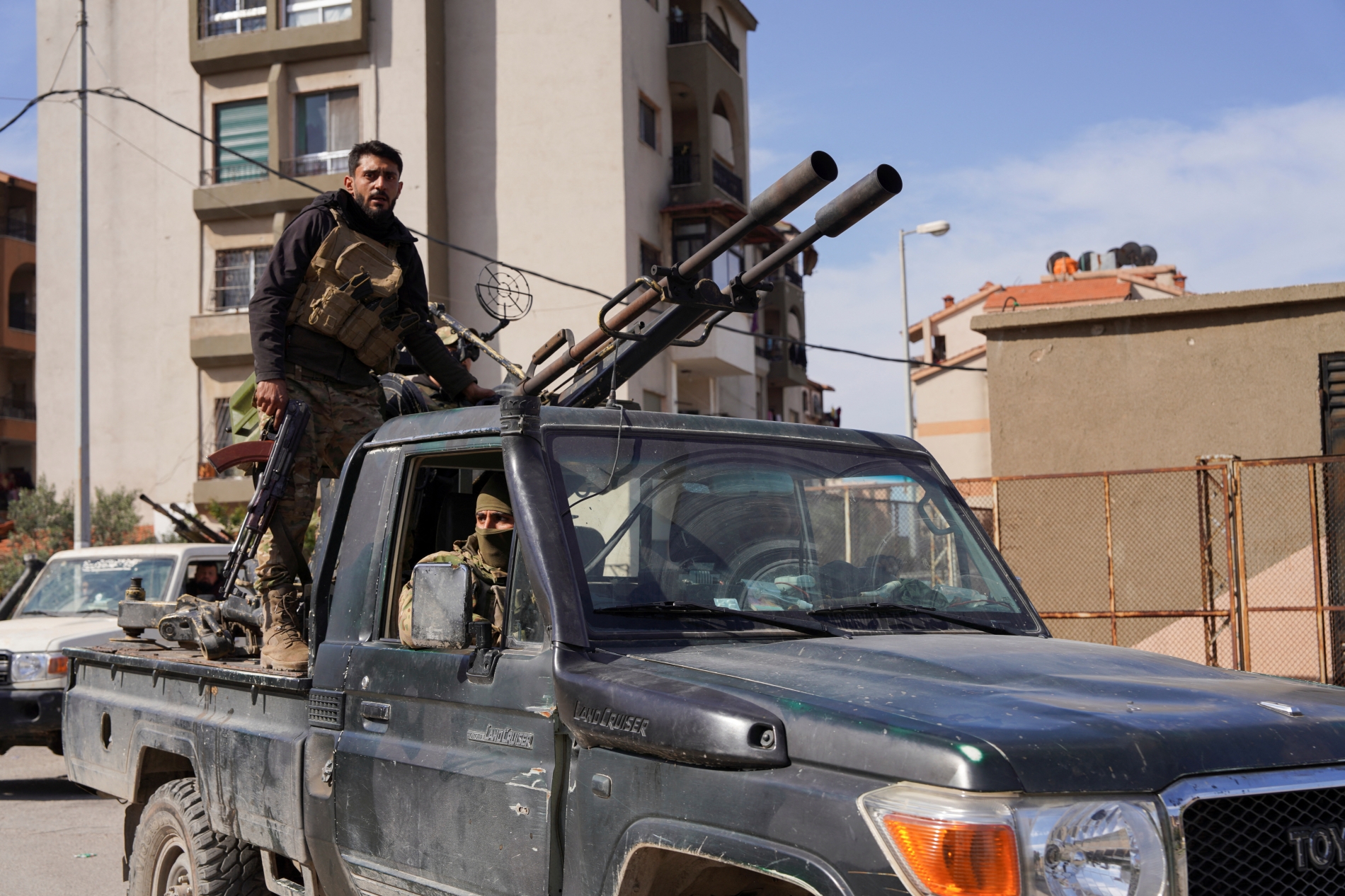
Addressing it requires two things. First, what the authorities have already done—condemning and criminalising these actions and holding those responsible to account. Second, immediately putting an end to these violations and establishing transparent, independent mechanisms to investigate and ensure accountability.
What is different between Sweida and what happened on the Syrian coast?
There are many differences. The events on the coast in March began with an attack by the so-called remnants of the regime against General Security forces, and the situation escalated from there. In Sweida, it was different. Escalation could have been avoided if all parties had acted differently.
There is another important point here: on the coast, there were allegations of rogue or unruly factions acting without orders from the Ministry of Defence. In Sweida, that was not the case. The conduct of forces affiliated with the IA, including violations committed against civilians, is unacceptable and cannot be justified under any circumstances. The IA itself has acknowledged this and called for an immediate end to such practices.
Some Syrian Druze figures have called for “international protection.” What is your opinion on that?
I always tell all Syrian parties I meet with—regardless of their background—that relying on the idea of international protection, or expecting UN troops or others to intervene, is unrealistic. It requires a UN Security Council resolution, which is extremely difficult to get.
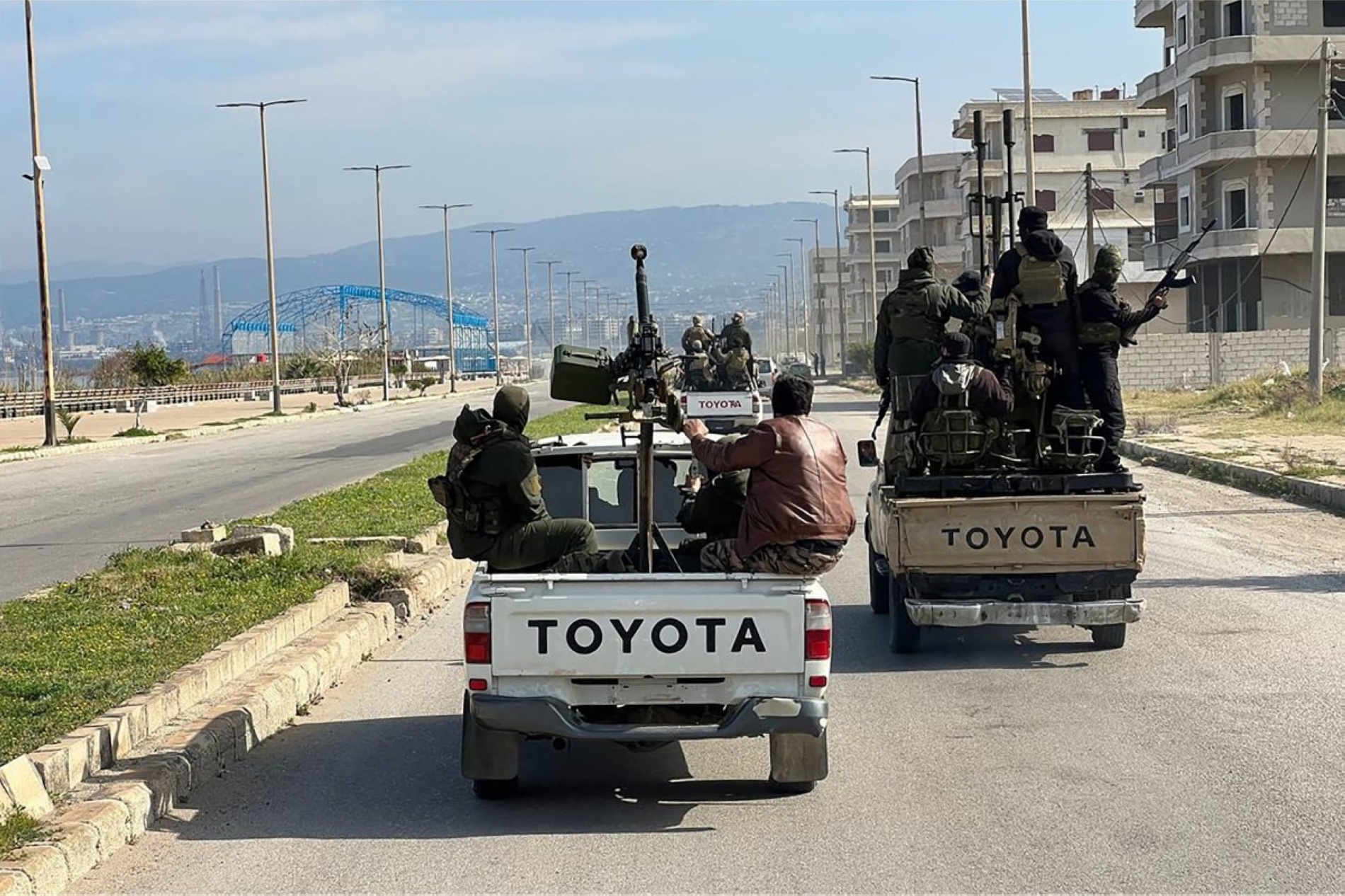
I consistently emphasise that the best solution comes through dialogue, mutual agreements, and joint arrangements. It is also essential to put an end to inflammatory rhetoric from all sides.
Israel has targeted areas in Sweida and Damascus. How do you see that?
I have repeatedly said that all parties must respect Syria’s sovereignty, independence, and territorial integrity. I have publicly condemned the Israeli strikes and interventions in all my briefings to the Security Council. It must stop.
What is your vision for a solution in Sweida?
The immediate priority must be to stop the violence, protect civilians, and ensure the delivery of humanitarian and medical assistance. I am glad that calm has prevailed, and I sincerely hope we can build on this to achieve lasting stability.


